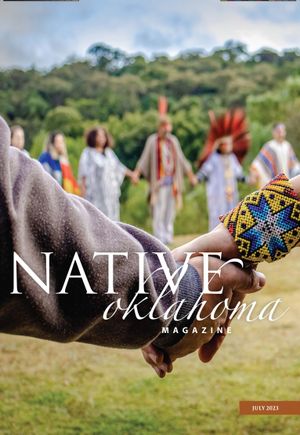

Gov. Stitt sues GOP lawmakers after veto overrides
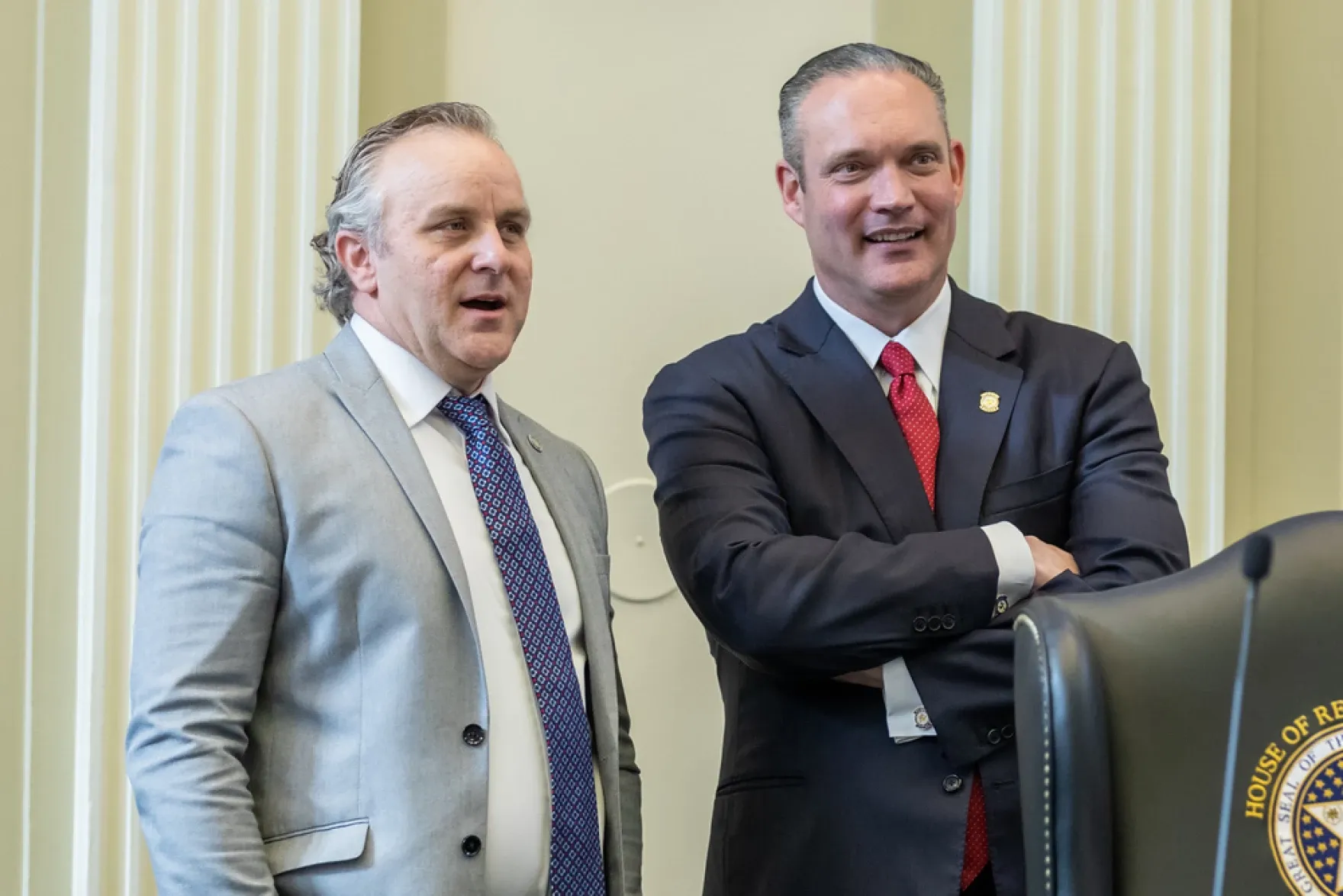
By Allison Herrera, Robby Korth, Graycen Wheeler
Gov. Kevin Stitt’s vetoes of a pair of compacts with the state’s tribal nations by Oklahoma’s legislature will not stand. Now Stitt is suing Oklahoma’s legislative leaders, saying a veto override pushed beyond the legislature’s legal powers.
On Monday, the Oklahoma House of Representatives overrode Stitt's veto of a compact extension of state-tribal tobacco compacts until the end of 2024 involving tobacco sales, by a vote of 72 to 16.
The House and Senate had previously overridden a similar veto over a state-tribal motor vehicle compact bill.
Senate Bill 26X will extend the state-tribal tobacco compacts until the end of 2024 while HB 1005X will extend the motor vehicle registration to the same date.
Later that day, Stitt filed a lawsuit against Senate Pro Tem Greg Treat and House Speaker Charles McCall, asking the Oklahoma Supreme Court to void those compact extensions.
“We need the Supreme Court to let us know who has the authority,” Stitt said at a press conference Monday. “Does the governor have the authority to negotiate the compacts or does the legislature have the authority to negotiate the compacts?”
Why did Stitt veto the compacts in the first place?
Both the House and Senate overwhelmingly voted to approve them during the regular legislative session that ended in May.
The governor vetoed both bills after the session ended.
In his veto message, Stitt said the bills were a violation of statutory law and were a poor deal for the state.
The bills "purport to extend a single motor vehicle licensing compact without any regard for whether the decade old compact is a fair deal for the State moving forward. Both because this Bill amounts to a circumvention of the executive’s authority to negotiate compacts and because it is not in the State’s best interests, I must veto it," Stitt wrote.
Stitt expressed concern that the language in the legislature’s compact extensions could let tribes put more land into trusts, exempting businesses on that land from paying taxes to the state.
The compact did offer a 50-50 split but included language that would have redefined what is Indian Country. Something only the US Congress can do.
William Norman represented some of the tribal nations Stitt addressed in his letter. He said tribes were not interested in negotiating those terms.
“I think most tribes viewed that as a substantive change,” Norman said. “So there was a disconnect between, you know, the message from the governor's office that said nothing's changing.”
Here's the exact language Norman is referring to:" The provisions of this Compact shall establish and govern the rate of taxation and payment of taxes to the Nation and the State on the retail sales of cigarettes and other tobacco products in the Nation’s Indian Country as defined herein, i.e., as lands owned by the Nation and/or its members which are held in trust by the United States, or which are owned by members of the Nation and are subject to restricted title. Such lands are hereinafter referred to as “Compact Jurisdiction,” when said retail sales are made by the Nation. Nothing contained herein
Shall impair the ability of the Oklahoma Tax Commission to regulate cigarette manufacturers, importers, wholesalers, distributors, distributing agents, jobbers, or warehousemen (“Wholesalers”); provided that such regulation shall not interfere with the rights of the Nation under this Compact."
Senate Pro-Tem Greg Treat hit back at the governor in a written statement.
“These compacts in particular weren’t new, they weren’t unique in any way, they simply kept the exact same language as before to give him an opportunity to try and do the right thing by working with the tribes to renegotiate the compacts, while ensuring the state didn’t lose millions in revenue. He has once again failed Oklahoma. Today, history is repeating itself with the announcement of this lawsuit. I’m confident his intentions will meet the same fate as we have unfortunately witnessed, and paid for, in the past."
“By overriding these vetoes, the legislature gave the governor another avenue and opportunity to negotiate in good faith, as we have done repeatedly. He has never accepted or appreciated our efforts and has turned his back all four million Oklahomans, the legislative process and Oklahoma’s tribal partners, costing the state millions in legal fees. This zero-sum game he is playing is a losing strategy and I hope Oklahomans and my fellow lawmakers are paying careful attention.”
How will the governor and tribal nations move forward?
Stitt and the tribes have had a rocky relationship since he was elected. The renewal of the tag and tobacco compacts are just the latest issues where the Oklahoma legislature has stepped in to negotiate a way forward in an era where some feel the Governor has grown hostile toward the tribal nations.
“I have been negotiating and put this in front of [the tribes] for the last two months at the same financial terms as they had last year,” Stitt said. “They've refused to sign it. So they have gone around the governor.”
Tribal nation negotiators say the sticking point isn't about their contribution, but rather how the governor is trying to define what is and isn't Native land.
But despite his stated frustration that the tribes wouldn’t negotiate with him, Stitt repeatedly expressed his own unwillingness to budge on his compact language.
“I will not give an inch,” Stitt said. “Will I do the exact same compact that we've had in place since Governor Walters, Henry, Fallin and Keating: a 50-50 split on tobacco in tribal stores? Absolutely. That's what I've offered right here. But I will not change the language on my compact.”
Stitt said he respects the tribal nations and that he simply wants a better deal for the state on the amount of money the state collects on the vehicle registration and tobacco compacts.
Stitt also repeated some falsehoods during his press conference-one saying that tribes aren't paying tolls because of their license plates
“We have lost $4.7 million [because] we can't read tribal license plates,” Stitt said. They're not in our system. That means they're driving on our turnpikes without paying the the toll that everybody else does.”
Tribal Nations respond
Last week, Cherokee Nation Principal Chief Chuck Hoskin Jr. released a statement saying this is “unequivocally false."
“At no time did anyone from [the state] contact us with concerns about Cherokee Nation tags as it transitioned to a new ‘PlatePay’ system,” Hoskin said in the statement. “If there are any problems accessing Cherokee Nation tag information the state government’s agencies are the source of the problems, and the source of potential solutions.”
Tribal leaders applauded the actions by the legislature.
“The issues that our shared communities face can no longer wait to be addressed while we waste time and taxpayer money on pointless legal battles,” Muscogee Nation Principal Chief David Hill said in a statement. “The message should be clear now, it's time to work together."
Choctaw Nation Chief Gary Batton sent a statement to the media saying he was also pleased with Monday's house vote.
"Throughout the regular session and after, Oklahoma’s Legislature has made one thing very clear: They understand the importance of cooperation between the state and sovereign tribal nations, and they acknowledge the benefits working together provide for all Oklahomans,” Batton said. “We thank the Senate and the House for their willingness to collaborate, and for their endurance in correcting Gov. Stitt’s errors.”

New judge sets Sept. 20 hearing on major motions in Osage Wind case
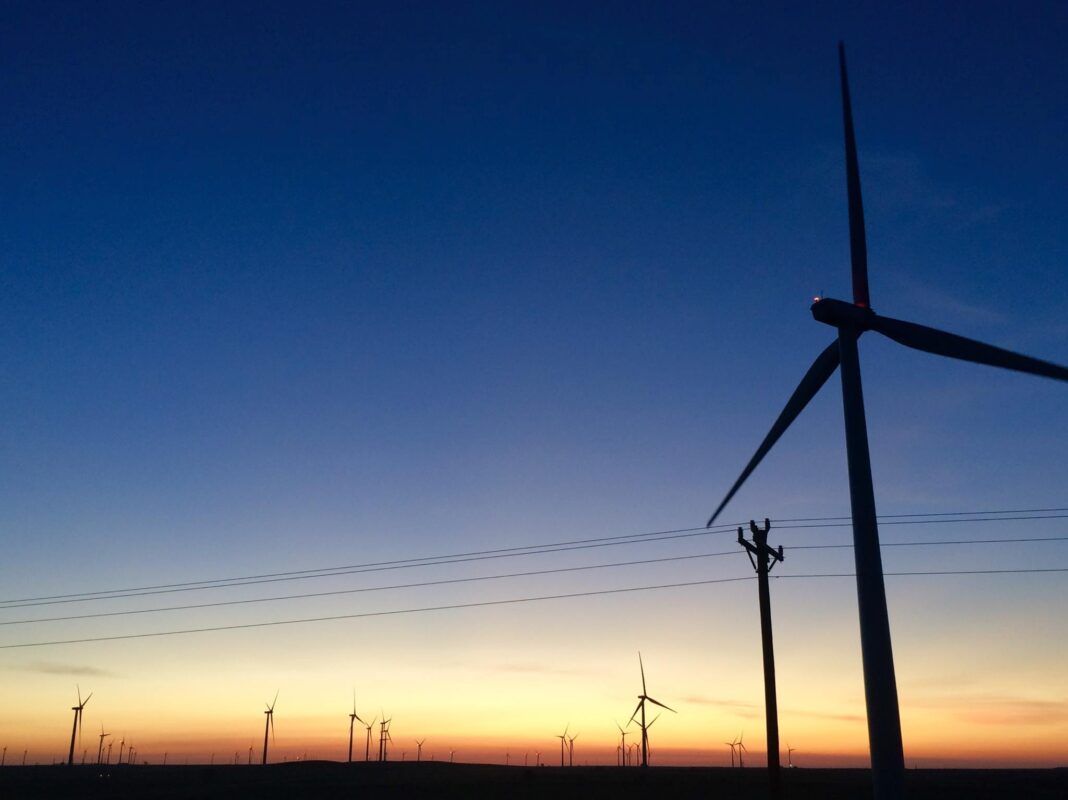
For undisclosed reasons, Minerals Council attorneys withdraw nine days after Judge Jennifer Choe-Groves order
by Louise Redcorn, Osage news reporter
Back in 2013, when TradeWind Energy was hammering out an agreement to buy the Osage Wind project that was destined to become a cash-cow subsidiary of Italian energy giant Enel, a peculiar provision was in the contract:
“For the avoidance of doubt, no Native American tribe, nation, entity, body, organization, governmental or other authority, or any agency, division, ministry, instrumentality or authority thereof, shall be considered a ‘Governmental Authority’ for any purpose hereunder.”
That’s a lot of nouns to ensure that the Osage Nation’s sovereignty was disregarded, but that is exactly what Enel and its subsidiaries wanted to do, say the United States and the Osage Minerals Council in pleadings in a federal legal tussle that began in 2014.
That lawsuit centers on Enel Green Power North America, its underlings and its predecessors illegally invading the Osage Mineral Estate by mining limestone and other rock without a required permit or lease, then using the crushed rock for turbine foundations and other purposes.
The case has had a rollercoaster of a ride: The United States – and thus the Osage Nation – lost in the U.S. District Court for Northern Oklahoma back in 2015, then wrestled out a win in the 10th Circuit U.S. Court of Appeals in 2017, and effectively won again in 2019, when the U.S. Supreme Court refused to hear an appeal from the wind company.
Since then, mediation has failed, lawyers have been hired and lawyers have left, new judges took on the case, a few hearings have been held (telephonically thanks to a global pandemic), the Minerals Council was allowed to intervene after a last minute – literally – motion and all parties involved have filed dueling motions for summary judgment and attempted to disqualify the other side’s expert witnesses.
On July 28, the lead attorney for the Minerals Council, Wilson Pipestem and his colleagues, withdrew from the case for reasons that are unclear: OMC chairman Everett Waller declined to comment on the matter when contacted on July 31. Mary Kathryn Nagle, who wrote most of the motions, withdrew from the case earlier, in March. She did not answer a call and her voicemail was full, but she is no longer listed as an attorney on Pipestem Law’s website.
In February, Chief U.S. District Court Judge Gregory Frizzell, who had been presiding over the case since it was kicked back down the ladder by the 10th Circuit, assigned it to Jennifer Choe-Groves, a judge who ordinarily sits on the U.S. Court of International Trade in New York City.
Many hoped a new judge would get the case off high center, and it appears that might be poised to happen: On July 19, Choe-Groves issued a one-page order informing all litigants to appear in person in U.S. District Court in Tulsa on Sept. 20 for oral argument on pending motions, all of which have been stewing on a back burner for at least two years.
Still seeking to scrub the prairie of the turbines.
Most of those motions are for summary judgment: The United States and the Minerals Council are asking not only for monetary damages but more importantly for “ejectment” – the removal of the 84 industrial turbines from the prairie, a punishment that Enel claims would cost the company nearly $260 million (which, according to one court filing, is about 10 percent less than the $237 million that the Osage Wind facility had already paid to investors by 2021 – including $230 million it has paid to its parent company, Enel).
For the Osage Nation and the United States, the crux of the damages Enel wreaked upon the mineral estate has little to do with the value of the rock, but instead centers heavily on tribal sovereignty that they say Enel flagrantly disregarded.
If anyone can thumb their nose at federal law, then atone for it as Enel suggests merely by paying the value of what they took – in this case, gravel – then Osage authority over its own mineral estate is undermined, says the Minerals Council’s motion for summary judgment.
“Defendants’ unlawful mining of the Osage Mineral Estate threatens to obliterate the OMC’s sovereign right to determine how, when and IF an entity mines the estate at all …
“Defendants’ trespass not only unlawfully seizes tribal assets, it threatens the ability of the OMC to function as a government and enforce Osage laws.”
The Minerals Council was, from the outset, adamantly opposed to the wind facility being built, and back as far as 2010 appeared highly unlikely to ever approve anything to do with it. It had filed a previous lawsuit to prevent construction based on the argument that the turbines would prevent full access to the oil below the surface, but that case failed.
Enel argued, unsuccessfully, that the Minerals Council should have raised the issue of mining rock in that lawsuit, but federal judges disagreed, noting that the issue wasn’t ripe: No one, allegedly, even the wind developers themselves, had known that rock would be mined to buttress the turbines until 2014. The United States filed suit within two months of it becoming apparent that’s what was occurring – shortly after Robin Phillips, the superintendent of the Bureau of Indian Affairs’ Osage Agency at the time – sent developers a letter demanding that they halt construction and obtain a “sandy soil permit.” Phillips sent the letter about 10 days after Principal Chief Geoffrey Standing Bear alerted her to the rock crushers operating on the prairie building site.
The Phillips’ letter was roundly ignored, the United States says: In fact, it appeared to onlookers at the time that in response the pace of construction was accelerated.
Enel disputes those statements and says it did, in fact, stop work for one day at the construction site – and ceased crushing rock for a week while it sought legal advice. When it got the green light, it resumed crushing rock.
Enel: Nation can’t get its rocks back
Enel is also seeking summary judgment. It insists that the turbines on the land do not rise to “continuing trespass.”
“The conduct that caused the injury – crushing rock – is not ongoing and ended once and for all nearly seven years ago,” Enel’s summary judgment motion says. “Nor is it abatable now. Once pieces of rock were run through the rock crusher, no manner of abatement could restore them to their original size or shape.”
Any harm to the mineral estate, it adds, can be compensated with money.
“Indeed, the United States has proffered an expert who testified as to the alleged value to the OMC of the minerals ‘mined,’ down to the penny – $247,979.42,” the motion says. “… Requests for injunctions must be narrowly tailored to remedy the actual harm shown; not wholly unmoored from that harm and capable only of exacting extreme punishment.”
Enel’s expert witness tallied the damages at an even lower price tag: $68,993.
Enel: Sovereignty claim is a ‘shopworn theory’
Enel is also completely dismissive of arguments that Osage sovereignty was harmed by its use of the rock.
“The OMC’s overheated assertion that the Defendants ‘threaten to obliterate the OMC’s sovereign right to determine how, when and IF an entity mines the estate’ is another shopworn theory that it suffered irreparable harm when deprived of the asserted right to ‘say no,’” Enel’s attorney Ryan Ray wrote in a response.
“The OMC protests too much when it complains ‘[t]he OMC and Osage Nation are not commercial entities’ and ‘do not have to participate in the market at all.’”
Ray cites Minerals Council chairman Everett Waller’s own statements during a deposition, in which he described the Osage Nation as “the fossil fuel tribe” and added, “This is a business. We’re in the oil business.”
Acting on legal advice?
Enel and its predecessors also claim they acted in “good faith,” relying upon the advice of its lawyers at Modrall Sperling, a New Mexico law firm that specializes in Native American law. If the good faith argument is successful, Enel argues that it cannot be held liable for damages.
The United States picks at this argument by Enel, noting that Enel failed to inform Modrall of the extent of their excavating and ignoring Modrall’s explicit warning that the lease with the landowners gave the wind project cover only as “long as it does not gain any benefit from that soil.”
“It is strikingly apparent that the memo missed the mark by not evidencing any understanding of the nature and extent of Defendant’s excavation and usage of the minerals,” the United States’ attorney, Cathryn McClanahan, says in the motion for summary judgment. “Defendants were well aware the memo missed the mark but ‘relied’ on it anyway.”
In addition, the memo predated Enel’s plans to crush rock at the site, McClanahan notes: The Modrall memo was dated Oct. 13, 2013, and zero mention was ever made of crushing rock onsite until a full year later. In fact, Enel/Tradewind was adamant that it would not crush rock on site until Oct. 21, 2014, when it sent “a detailed legal analysis” to the United States mentioning rock crushing as a means of excavation. Just six weeks earlier, an email between executives on Sept. 2, 2014, revealed Enel was singing a different tune: “Enel/Tradewind does not want any crushing on site due to mineral right issues.”
Enel shot back that it disputes these claims. A 2013 scope of work documented “contemplate rock crushing,” it says in court filings. A layman just might not have noticed, however, because by Enel’s own words the document said that some turbine sites might be excavated for “more competent rock” using “special excavation equipment such as a hoe ram or equivalent” and “additional special handling of the excavated rock.” (A hoe ram is a sharp-tipped hydraulic hammer used to demolish rock and concrete surfaces.)
Damages: Opposing sides are worlds apart
Both the United States and the Osage Minerals Council are seeking damages that they view as commensurate with Enel’s poor behavior. The U.S. expert, a forensic accountant named Steven Hazel, estimated damages at almost $26 million based not on the amount of rock Enel used but on the lifetime value of the six leases the wind facility has with surface owners, who are mostly members of the Kane family, including M. John Kane, the current chief justice of the Oklahoma Supreme Court. (At the time the leases were executed, he was the district judge for Osage County.)
Enel characterized the Hazel estimate as absurd, but Hazel defended it when he was deposed, and told Enel lead attorney Ray that Ray was missing the point.
“They [Enel/Osage Wind] have to get a lease,” Hazel told Ray. “So they have to negotiate a lease with the Osage Nation to basically get this wind farm in place. My understanding the Osage Nation would have said ‘no.’ ‘Absolutely no’ is what they would have said …
“They don’t want a wind farm there. I don’t know how to get that through to you. So now you’re negotiating with a party that doesn’t want to do what you’re doing. How do you think that negotiation is going to go?”
The U.S. and OMC say that Enel/Osage Wind clearly knew the Osage Nation wasn’t going to approve any lease, and therefore decided to flex its multinational muscles and take a risk by forging ahead without the proper permit.
McClanahan, the United States’ attorney, chastened Enel for its haughtiness: “Beyond the definition itself, Defendants’ irreparable damage has been consistently demonstrated in their cavalier approach to the Project. With warning aplenty, Defendants went ahead with their plans, mined the OME, fought this litigation tooth and nail (sparing no expense regarding attorneys’ fees), and now expect the Court to award a pittance – if anything – for their transgressions.
“If successful, their actions embolden other bad actors to emulate their systematic avoidance of negotiating with the Osage Nation and disincentivize recognition of applicable federal regulations.”

Chairman Barrett accepted into Oklahoma Hall of Fame
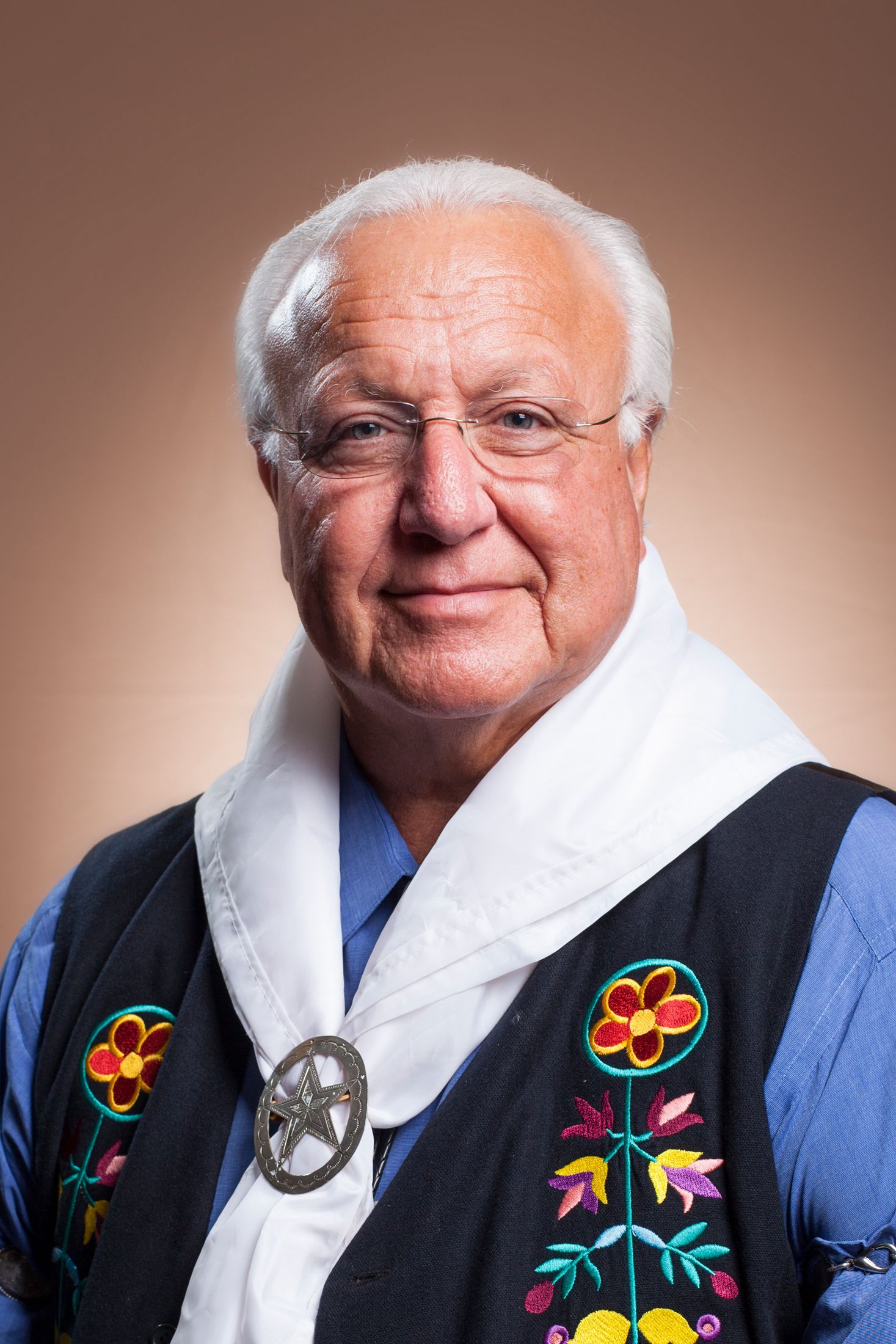
By Paige Willett, Citizen Potawatomi Nation
Tribal Chairman John “Rocky” Barrett is one of eight honorees selected for the Oklahoma Hall of Fame in 2023. Since its inception in 1927, 730 accomplished individuals have received this commendation. Chairman Barrett is one of only eight people from Shawnee during that time, joining Gregory Gerrer (1931), Cassius Cade (1939), Burton Rascoe (1944), John Wesley Raley (1958), Gordon Cooper (1962), Tom Steed (1971) and Robert Henry (2008).
“These friends stand tall on a mountain of accomplishments, yet their feet are planted firmly in the red dirt of Oklahoma,” said Oklahoma Hall of Fame Member Jane Jayroe. She spoke during the announcement luncheon on May 25.
Chairman Barrett joins scientists, health care professionals, automobile designers, Olympic gold medalists, neurosurgeons, engineers and other Tribal leaders as part of the 96th Oklahoma Hall of Fame class.
“It is an honor to be among the more than 700 individuals recognized for their contributions to the state and society at large,” Barrett said. “As the leader of a tribal nation, I serve as a steward of the traditions that have built CPN into the robust and thriving sovereign entity it is today.”
Chairman Barrett has served as an elected official for the Citizen Potawatomi Nation since 1973 when he was first elected as Vice-Chairman. Barrett is the eighth generation of his family to serve in elected office for CPN. Under his leadership, the Nation has grown from having assets totaling just $550 and less than three acres of land to an entity making an annual economic impact exceeding $750 million and becoming the largest employer in Pottawatomie County. Barrett attended Shawnee High School and holds degrees from St. Gregory’s University, Oklahoma City University, the University of Oklahoma and Princeton University.
“Our state’s highest honor goes deservedly to these Oklahomans who apply their talents and intellect to reach for more. Each Honoree is an inspiring ambassador of the pioneer spirit we so admire and need today,” said Oklahoma Hall of Fame President and CEO Shannon L. Rich.
Barrett has guest lectured at Harvard University for the Harvard Project on American Indian Economic Development and at the Banff Center in Banff, Alberta, Canada, to the assembled Canadian First Nations. He serves on the International Advisory Council of the Native Nations Institute and has served as a delegate of the Unites States Federally Recognized Tribes to the United Nations Committee on the Rights of Indigenous Peoples at The Hague, which provided the International Declaration on the Rights of Indigenous People approved by the U.N. Committee on Human Rights and the U.N. General Assembly. Barrett also recently accepted an appointment to the Oklahoma Hall of Fame Board of Directors and the Leadership Award for Public Service from the International Economic Development Council.
The induction ceremony is scheduled for Thursday, Nov. 16, 2023, at the Embassy Suites by Hilton Hotel & Conference Center in Norman, Oklahoma.
About the Oklahoma Hall of Fame: Founded in 1927, the Oklahoma Hall of Fame preserves Oklahoma’s unique heritage by telling Oklahoma’s story through its people. The organization was created to honor exceptional Oklahomans and provide educational opportunities for students of all ages. Induction to the Oklahoma Hall of Fame is recognized as Oklahoma’s Highest Honor. Through interactive exhibits and programming at the Gaylord-Pickens Museum, as well as statewide outreach, the Oklahoma Hall of Fame promotes pride in our great state. For more information, visit oklahomahof.com.
Election board releases official 2023 MCN Election Races list
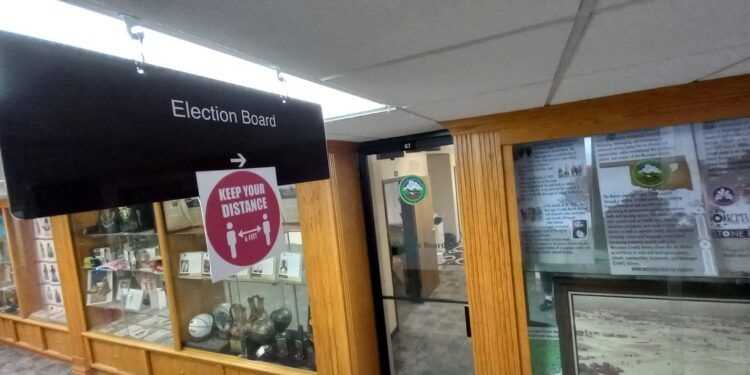
Registration is now closed for candidates running for office
OKMULGEE, Okla. – On July 17-19 the Muscogee (Creek) Nation Election Board set up candidate filing in the Housing Building conference room. This is where citizens filed for office, including Principal Chief, Second Chief, and National Council Representative Seat A for all districts.
The Muscogee (Creek) Nation Election Office Facebook page released an official roster on July 26. The contestation period closed July 21.
Running for Principal Chief is current MCN Principal Chief David Hill, Tim Good Voice, Lahoma (Hicks) Shultz, and Joseph T. Rogers. Mr. Good Voice previously ran against Hill in the 2019 Principal Chief race, garnering 4.94% of the vote, which was not enough for him to proceed to the general election.
Second Chief candidates include current Second Chief Del Beaver and current National Council Representative Sandra Golden. Golden is currently half way through her four year Okfuskee District Seat B term. If she wins the race a special election will have to be held to elect her successor.
Incumbent Joseph Hicks will face off against Leney Joe McNac Jr. and Dode Barnett. Barnett previously ran against Hicks in the 2019 election, where she garnered 29% of the vote. This was not enough to progress beyond the primary.
Judith Pickering will face incumbent Darrell Proctor in McIntosh District.
Incumbent William Lowe will see two challengers in his primary, James Jennings and Robyn Whitecloud. Jennings had previously held the Okmulgee Seat B. In the 2021 election he was defeated by Nelson Harjo Sr.
Uncontested districts include Muskogee with incumbent Mary Crawford, Okfuskee with incumbent Randall Hicks, Tulsa with incumbent Robert Hufft, Tukvpvtce with incumbent Anna Marshall, and Wagoner/Rogers/Mayes with incumbent Charles Son McHenry.
Mvskoke Media was on scene at the candidate filing each day.
Voter Registration
The primary election will be held on September 16 at designated precinct polling sites housed at each community center. There are a total of 18 sites. Early voting will be held September 13-14 at four community centers, including Okmulgee, Okemah, Eufaula and Tulsa.
Voters can update their profiles or register on the MCN Camphouse Portal.
Absentee ballots can be requested as well. Requests were mailed by the election office earlier in the year. Paid postage is due by August 23 for the primary election.
The total number of registered voters for the Muscogee (Creek) Nation is 18,027 as of July 1. According to election data from 2019, only 5,092 voters participated in the general election from that year. Of that number, 3,438 resided within the Muscogee jurisdiction boundaries.



